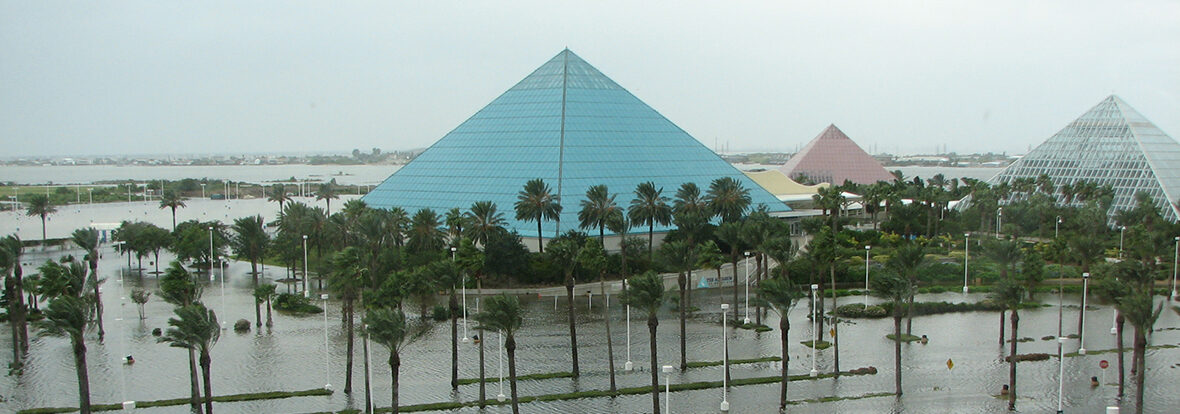
How is the island of Galveston doing?
Unfortunately, we’re seeing not just the impact of hurricanes…the past few storms have caused a lot of flooding. Other natural events affect the area too. For example, last year we had high tides that could have been devastating if we didn’t have our flood gates up. With the tidal surge increasing along the Gulf Coast and the water rising at about a ¼” inch a year, in 8 years that is 2 inches more of water. Because of that we are going to have intrusion in places that we need to start thinking ahead about. With normal global warming and increase in tides it’s not only hurricanes that we’re ready for, it’s other natural disasters that I’m hoping GRS can help us with. We want to protect our assets; we want to protect our people and we want to protect our animals. These are key safety areas we look at during a natural disaster.
Your property is unique; what past experiences and previous events have helped you prepare?
After Hurricane Ike in 2008, we moved some of our animals. Animals are just like humans, it’s very stressful, you must move, you have to get all your medications, all of your stuff together that you need for those animals. We shelter in place until we find out what kind of damage has been done to our assets: do we have heating, water, cooling? We tackle one thing at a time, one problem at a time, because as we all know, you tackle one problem and another one comes up. You’ve just got to get through it. I would not have thought that a big 18,000-gallon tank of diesel fuel would float. We had everything in place. We had our diesel fuel, we had our generators, but it moved, so we could not use those generators. The force of the water can be amazing. It’s something that you don’t know, until you experience it or see it. It’s incredible.
What changes have you seen since Hurricane Ike?
I think the biggest changes that I have seen is increased flood mitigation on our end. We use flood doors quite a bit. In an area flood or coastal flood advisory that has really helped us as well as during a hurricane where we have lost basements and things like that. The flood mitigation went into effect and we were able to use that to keep our daily operations going even with just a little flooding. We really figured it out, during a category two with a huge storm surge: areas we thought would never end up under water, had water.
What piece of advice would you give others in preparing for the unexpected?
It’s not when, or if, it’s going to happen. It’s going to happen to everybody. You must go out and look at your assets, see where you are vulnerable, and make a plan. Plan for the worst and protect it. Make sure everyone knows the plan. Every time you go through something like this you learn something new.
—
GRS Disaster Response is dedicated to helping our clients prepare before an event to minimize business interruption and damage. We recommend developing a pre-loss agreement with your disaster response vendor to plan for how to optimize your assets and minimize your risk. With hurricane season upon us, there is no better time than the present to be more prepared.


2 Replies to “Client Insights: Lessons Learned on Preparing for the Unexpected”
Peter Manning
Nice work Jim. Let’s get a round of golf in soon?
JIm
Thanks Pete! Let do it!
Comments are closed.